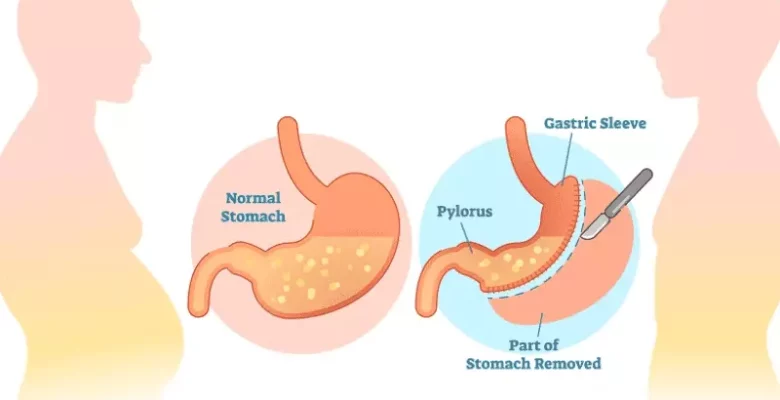With the growing demand for pharmaceutical products, businesses must navigate complex regulations. A GDP audit helps ensure compliance with national and international standards, improving the quality and security of the distribution process.
This article delves into the importance of GDP auditing services, what they involve and how they contribute to better supply chain practices. Whether you are a pharmaceutical distributor, wholesaler or healthcare provider, understanding GDP auditing services is crucial for staying compliant and safeguarding your products.
What is GDP Auditing?
GDP auditing reviews a company’s distribution processes to ensure compliance with Good Distribution Practices. It evaluates the storage, transportation and handling of pharmaceutical products to maintain quality, safety and regulatory standards throughout the supply chain.
Regulatory bodies like the European Medicines Agency (EMA), WHO and FDA set strict standards for distributing healthcare products to ensure safety and efficacy. These regulations are critical for maintaining the integrity of pharmaceutical products.
GDP auditing services help businesses comply with these standards, minimising non-compliance risks. By meeting these requirements, companies protect consumers and avoid costly fines or reputational harm.
Key Areas Covered in GDP Auditing Services
GDP audits cover several critical areas of the distribution process. The goal is to evaluate the entire journey of a product, from manufacturer to end-user and verify that it is handled correctly at each stage. Below are some of the primary areas that GDP auditing services examine:
Storage and Handling Practices
The storage conditions of pharmaceutical products are crucial in maintaining their quality. Improper handling or storage can result in contamination and degradation or even make products unsafe for use.
GDP auditors will inspect the storage facilities to ensure that the temperature, humidity, light exposure and other environmental factors are controlled according to the product requirements. Additionally, auditors verify that products are stored clean, secure and organised to prevent cross-contamination or accidental damage.
In some cases, temperature-sensitive products such as vaccines or biologics require refrigeration or even freezing to maintain their efficacy. GDP auditors will ensure the company has appropriate measures, such as temperature monitoring devices, to confirm that products are consistently stored within the required temperature ranges.
Transportation Compliance
Transportation plays a significant role in maintaining product quality. The way products are transported can influence their integrity, particularly for sensitive goods that require specific environmental conditions, such as temperature-controlled shipments. During the audit, transportation practices are evaluated to ensure that products are transported under suitable conditions and comply with applicable regulations.
Auditors assess shipping containers, vehicle cleanliness, and temperature control systems. Products requiring low temperatures must be transported in refrigerated trucks with monitoring devices. They also evaluate security measures to prevent theft or tampering during transit.
Inventory Management
Effective inventory management is crucial for accurate tracking and preventing the circulation of expired or damaged goods. GDP auditors assess inventory systems to ensure products are properly recorded, tracked and stored according to GDP standards. They also review procedures for handling discrepancies, returns and the disposal of expired or defective products.
An effective inventory system also includes regular stock audits, which help identify and resolve issues related to stock levels, product expiry and safety. GDP auditors will ensure that the company maintains proper records of stock levels, movements and transactions, with clear processes for addressing any issues that may arise.
Personnel Training and Competence
A well-trained workforce is essential for ensuring that GDP standards are adhered to throughout the distribution process. Personnel should know the specific requirements for handling, storing and transporting pharmaceutical products. GDP audits assess the training programs in place and whether employees are regularly updated on changes in regulations or procedures.
Auditors will review the training records to ensure that all relevant staff members have received adequate training. This includes training on product handling, safety protocols and emergency procedures. They will also verify that the training is ongoing and that employees are familiar with the specific requirements for different types of products, including temperature-sensitive and controlled substances.
Security and Risk Management
The security of the distribution process is another key focus of GDP audits. Pharmaceutical products, especially those with a high value or sensitive nature, are at risk of theft, tampering or diversion. Auditors will assess the security measures, such as surveillance systems, access control and security personnel. Additionally, they will evaluate how risks such as natural disasters, supply chain disruptions and transportation delays are managed.
Risk management also involves preparing for incidents such as product recalls or damage. GDP audits review how companies address these situations, including their procedures for notifying authorities and customers, as well as how they recover products that may have been compromised.
Why Are GDP Audits Necessary?
GDP audits are necessary for several reasons, each tied to the overarching goal of maintaining the safety, integrity and quality of pharmaceutical products. Let’s explore some of the most important reasons why GDP audits are essential:
Regulatory Compliance
The pharmaceutical industry is highly regulated and non-compliance with GDP standards can lead to severe consequences, including fines, recalls or legal action. Regulatory bodies set strict guidelines to ensure that healthcare products are handled properly throughout the supply chain. Regular GDP audits help companies stay up-to-date with evolving regulations and avoid violations that could compromise their business operations.
Maintaining Product Integrity
Product integrity is paramount in the pharmaceutical industry. A failure to adhere to GDP guidelines can lead to product degradation, contamination or loss of efficacy. GDP audits identify potential risks in the distribution process, enabling businesses to address issues before they lead to product failure or harm to consumers.
Risk Mitigation
By identifying and addressing vulnerabilities in the distribution chain, GDP audits help companies reduce the risk of loss, theft and damage. Whether it’s safeguarding against temperature excursions during transportation or ensuring proper security protocols are in place, GDP audits are a proactive way to mitigate risks before they become major issues.
Operational Efficiency
Regular GDP audits also serve as a means of identifying inefficiencies in the supply chain. For example, auditors may uncover areas where resources are being wasted, processes are redundant or improvements could be made to speed up operations without compromising product safety. These insights help companies run more efficiently and reduce costs.
Building Trust with Customers and Regulators
A commitment to following GDP guidelines and demonstrating compliance through regular audits builds trust with customers and regulatory authorities. By prioritising product safety and compliance, businesses signal their dedication to quality and customer satisfaction. This strengthens stakeholder relationships and helps maintain a positive reputation in the marketplace.
The GDP Auditing Process: What to Expect
A GDP audit is a comprehensive and multi-step process. Businesses undergoing an audit can expect the following sequence of events:
Pre-Audit Preparations
Before the audit begins, businesses should conduct a self-assessment to identify potential areas of concern. They should ensure that all necessary documentation, such as inventory records, training certificates and temperature logs, are up-to-date and available for review.
Site Visit and Inspection
The audit process typically begins with a site visit. Auditors will inspect the company’s facilities, including storage areas, vehicles and security measures. They will also interview key personnel to assess their understanding of GDP guidelines and procedures.
Document Review
A significant portion of the audit involves reviewing the company’s documentation. Auditors will verify that records of product shipments, temperature controls, employee training and security procedures are complete and in line with regulatory standards.
Reporting and Recommendations
After completing the audit, the auditors will prepare a detailed report outlining their findings. This report will highlight any areas of non-compliance and provide recommendations for corrective actions. Businesses will then need to address these recommendations to ensure compliance.
Follow-Up Audit
In some cases, a follow-up audit is necessary to verify that corrective actions have been implemented. This ensures that any issues identified during the initial audit have been resolved and that the company is fully compliant with GDP standards.
Choosing the Right GDP Auditing Service Provider
When choosing a GDP auditing provider, businesses should seek one with proven expertise in pharmaceuticals and healthcare. The provider should be familiar with industry-specific regulations and offer comprehensive audits covering storage, transportation and personnel training.
It’s also important to choose a provider that offers post-audit support. Implementing corrective actions can be challenging, so ongoing guidance from the audit firm can help ensure that all recommendations are successfully carried out.
Final Thoughts
GDP audits are crucial for ensuring compliance, product quality and risk mitigation in pharmaceutical distribution. They help businesses meet high standards, streamline operations, reduce costs and build trust with customers and regulators. Investing in GDP audits protects product integrity, ensures compliance and safeguards the business and its customers.





